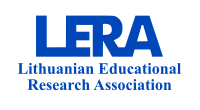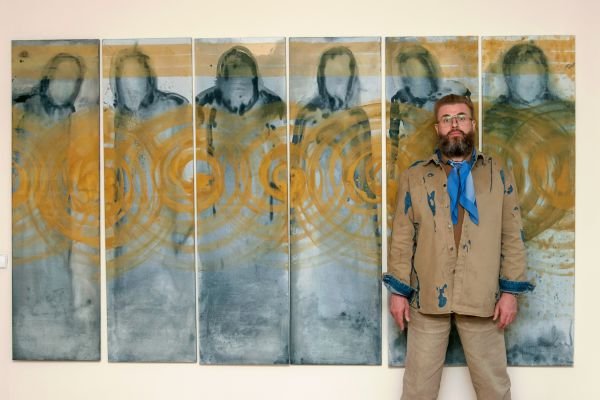Congratulations to the new PhD Valentinas Butanavičius on the successfull defece of his doctoral dissertation “What Does it Mean to be a Creative Teacher? An Integral Phenomenology Study Based on the Experiences of Non-Art Teachers” (Education Science (S 007), scientific supervisors: from 2018 to 2019 assoc. prof. Vida Kazragytė, from 2019-09-30 prof. habil. dr. Vilma Žydžiūnaitė) and after acquiring the degree of PhD of Social Sciences in Education field.
The dissertation is available at the Vytautas Magnus University and the Martynas Mažvydas National Library of Lithuania.
The dissertation is available at 11 Studentų St., Academy, district Kaunas
A short annotation of the dissertaton is presented below:
Teacher creativity is influenced by the students’ years of schooling, the subject, the teacher’s professional experience and age. The vast majority of research on teacher creativity is quantitative, focusing on skills, competences and factors. They are dominated by the paradigm of theory testing, which is evaluated by the research participants through surveys. Research to date has not delved into how teachers experience creativity, what it means to them, what teachers associate it with, i.e., creativity research to date has not paid sufficient attention to the teacher to reveal unique, authentic experiences of creativity. Neither nationally nor internationally has phenomenological research been found on the nature of teacher creativity, which is the focus of this thesis research. The aim of the study is to develop and substantiate a phenomenological framework for Being a Creative Teacher, emerging from teachers’ experiences, and the relationships between themes within it. To achieve this, the research question is: “How do teachers experience creativity through temporality, spatiality, relationality, corporeality, objecthood and spirituality?”
In order to understand what it means to be creative, it is important to listen to teachers’ lived experiences. Therefore, in order to achieve the research aim and find answers to the research questions, the methodology of integral phenomenology according to Žydžiūnaitė and Arce (2021) was used. It combined versions of van Manen’s (2007) phenomenology of practice and Moustak’s (1994) epistemological phenomenology. The participants of the study were chosen to be non-art teachers in order to move away from the traditional view of creativity without linking it to the mission of teachers in art disciplines. Drawing on teachers’ authentic experiences, the aim is to uncover the phenomenon of being a creative teacher as objectively as possible. In the empirical study and throughout the thesis, two approaches have been used: theoretical (component theory of creativity) and philosophical (phenomenology). 19 participants took part in the study.
The results reveal that the phenomenological structure of ‘being a creative teacher’ has vertical and horizontal vectors. The vertical vector consists of fifteen latent themes (being discovering, flexible, curious, motivated, relational, learning, professional, civic, leader, encouraging, opening, inclusive, authoritative, courageous, and nurturing), while the horizontal vector is composed of six dimensions (temporality, relationality, thingness/materiality, spirituality, corporeality, and spatiality). The phenomenological framework of the creative teacher that has been formulated and empirically grounded is unique, original and innovative in the field of this kind of research.
Disertation Defence Council:
Chairman – prof. dr. Remigijus Bubnys (Vilnius University; Social Sciences, Education, S 007)
Prof. dr. Sigitas Daukilas (Vytautas Magnus University; Social Sciences, Education, S 007)
Prof. dr. Vidmantas Tūtlys (Vytautas Magnus University; Social Sciences, Education, S 007)
Prof. dr. Rita Vaičekauskaitė (Klaipėda University; Social Sciences, Education, S 007)
Associate prof. dr. Emilija Sakadolskienė (Vytautas Magnus University; Social Sciences, Education, S 007)


